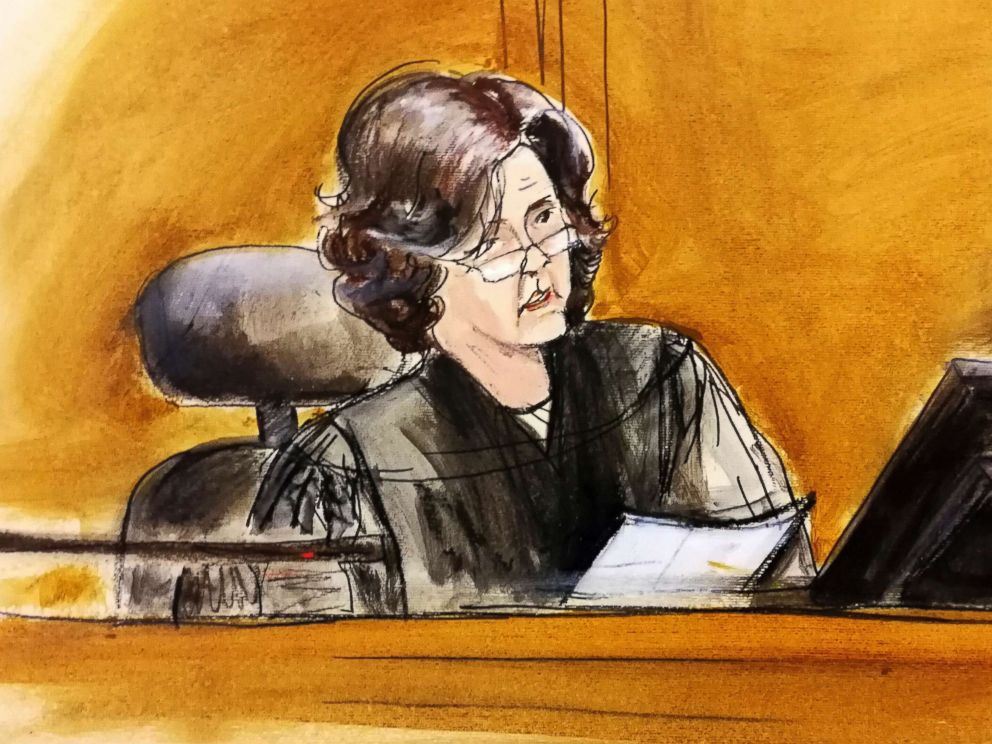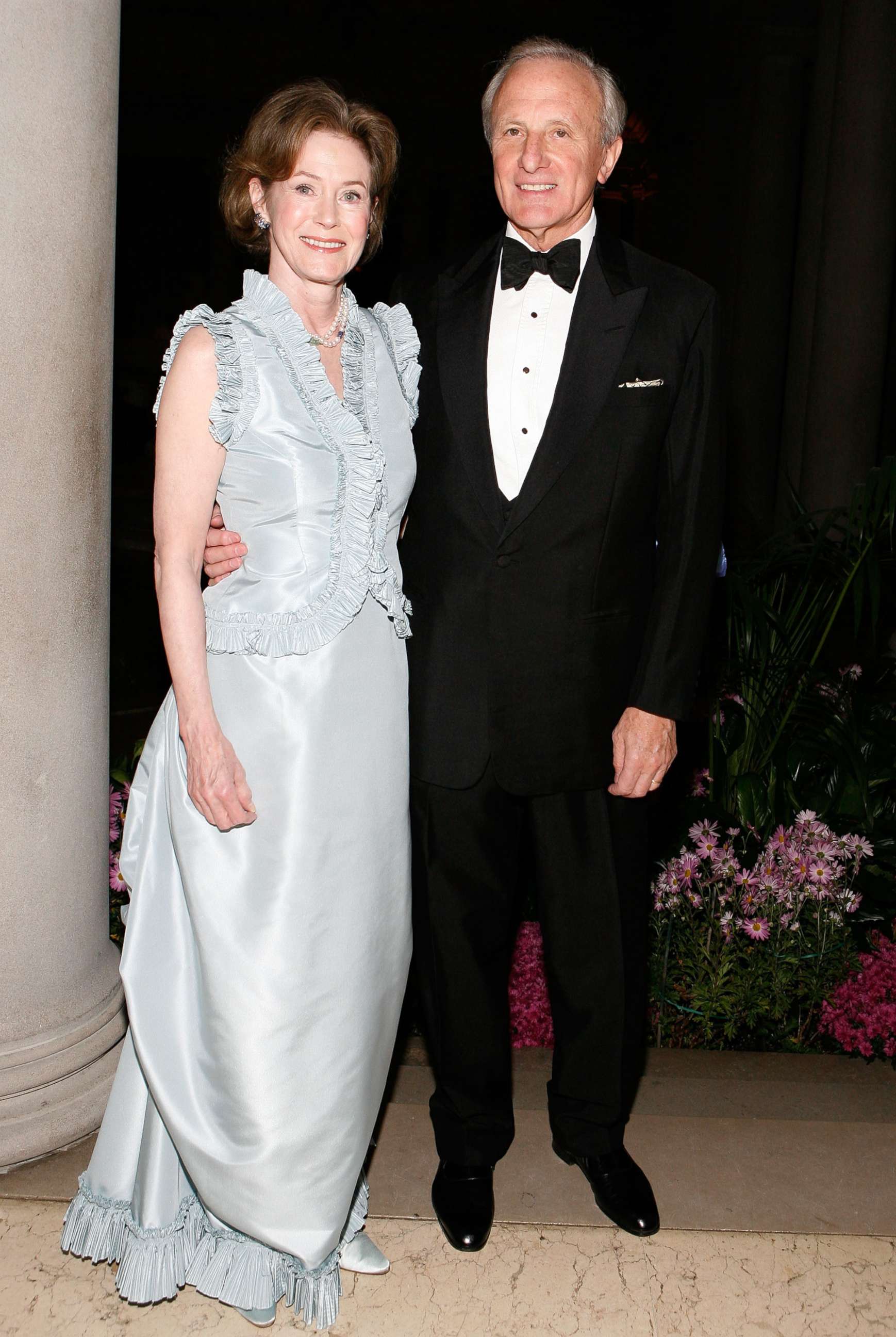Kimba Wood: The federal judge shouldering the legal fate of Trump attorney Michael Cohen
Who is Kimba Wood, the judge in the Michael Cohen case?
The Manhattan federal judge shouldering the legal fate of President Donald Trump’s personal attorney Michael Cohen, and possibly the president’s as well, is no stranger to political firestorms.
For United States District Judge Kimba M. Wood, who was once considered for Attorney General but was then forced to withdraw her name in the swirl of the so-called “nannygate” scandal, this week has marked a return to Washington’s special brand of high-stakes showdown, only in a new role — arbiter.
Wood is presiding over the federal case filed by Cohen and joined by Trump to keep federal prosecutors from reviewing documents and other records seized last week from Cohen’s office, home, hotel room and safe deposit box on grounds of attorney-client privilege. Court documents revealed that Cohen has been under criminal investigation for months.
On Monday, the veteran jurist denied Cohen and Trump’s request to review the trove of materials ahead of prosecutors and did so amidst the spectacle of a brewing Washington scandal. Monday’s courtroom drama included an appearance by adult film star Stormy Daniels, who has alleged a one-night tryst with Trump before he was president and a $130,000 hush payment from Cohen, evidence of which was seized in the raid, according to sources.
Wood drew the Cohen case after decades on the federal bench, where legal experts said she has distinguished herself.
“She is highly respected, smart, and doesn’t suffer fools,” said Gerald Shargel, a recently retired Manhattan criminal defense lawyer who handled several matters before Wood during his 40-year career. “She’s the real deal.”

That judicial career was interrupted in 1993 when President Bill Clinton prepared to nominate Wood to be the first female U.S. Attorney General. Wood had been a leading candidate for the position after Clinton’s first choice, Zoe Baird, withdrew her nomination. Baird admitted that she employed two women in the country illegally for household work and failed to pay the required taxes.
In a surprise turnabout, Wood issued a statement on February 5, 1993, saying that in 1986 she had hired a nanny from Trinidad who at the time was illegally in the United States. In her statement, Wood indicated that when she hired her, doing so was legal because it predated the enactment of a federal law making it unlawful to hire undocumented immigrants. And unlike Baird, Wood filed all necessary forms and paid all appropriate taxes.

Wood said that while everything she did was legal, she felt that under the circumstances accepting the post of Attorney General or being in consideration for it would be inappropriate.
Before Baird’s nomination, no male candidate for Attorney General had ever been asked about the legal status of their household help during confirmation hearings, according to multiple reports.
Russell Riley, a professor of presidential studies at the University of Virginia’s Miller Center, described Wood as a victim of a highly charged political era, somewhat like our current climate.
“The Republicans were eager to find any vulnerabilities in Clinton nominees in 1993,” said Riley. “Sensitivities were heightened because Clinton was billing himself as a new kind of Democrat with a new way of doing business, running against twelve years of Republican rule.” Riled added: “When there were any foibles found in a nominee, they were a very rich target.”
“Had it not been for ‘nanny-gate,’ Kimba Wood would have been confirmed as Attorney General, a position for which she was probably better qualified than the eventual choice of Janet Reno,” Patrick Maney, a professor of modern American history at Boston College, told ABC News. Maney said that because of her bipartisan background, she may have been at least talked about as a potential Supreme Court nominee had the nanny issue not arisen.
During Wood’s vetting process, the White House also discovered she had briefly trained as a Playboy bunny when she was a student in London in 1966 and feared it might become a distraction, according to the New York Times. After a week training as a croupier at the Playboy casino, “she quit because she thought the gig was silly,” the New York Daily News reported.
After her withdrawn nomination, Wood built a successful and storied judicial career spanning more than three decades. She has handled numerous prominent cases, including the 1990 securities fraud case of so-called “junk bond king” Michael Milken, whom she sentenced to ten years before seeing his sentence reduced to two years. Wood also presided over the US government’s headline-grabbing 2010 case against ten Russia spies, including photogenic redhead Anna Chapman, who was eventually deported in exchange for U.S. prisoners held in Russia.
Wood was nominated to the bench by Ronald Reagan in 1987 after nearly two decades practicing law. She is a graduate of Harvard Law School and the London School of Economics.
Legal experts told ABC News that Wood’s intelligence and legal chops have rarely been questioned.
“She has rock solid knowledge of criminal law,” Shargel said.
“She is respected by the lawyers who argue in front of her, and beloved by her fellow jurists,” agreed legal analyst and ABC News’ consultant Dan Abrams who has covered a number of Wood’s cases.




